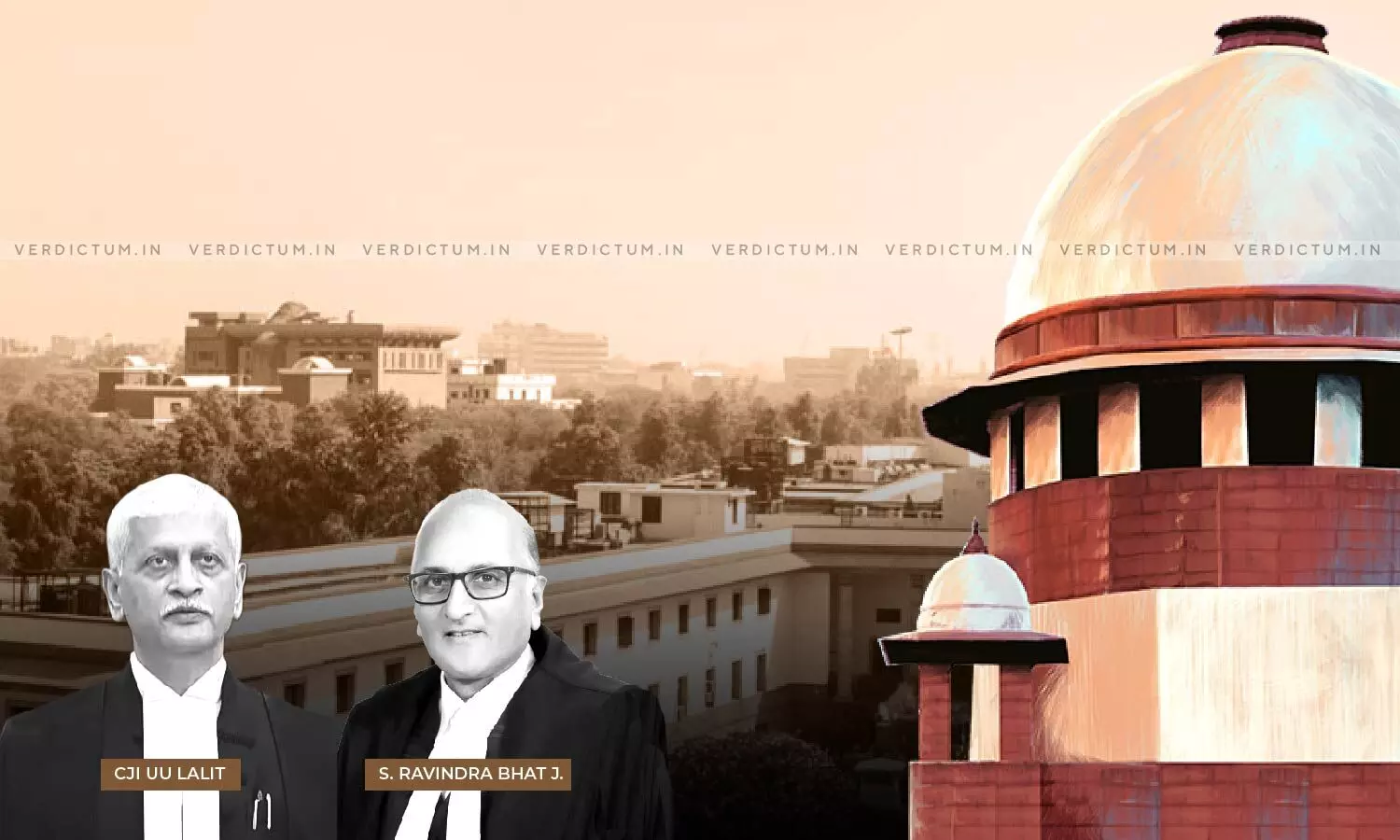
Leave Encashment Is Part Of Salary- Supreme Court Reiterates
 |
|The Supreme Court while placing reliance on the judgment of State of Rajasthan and Anr. v. Senior Higher Secondary School, Lachhmangarh, observed that leave encashment is part of the salary.
The Bench of Chief Justice UU Lalit and Justice S. Ravindra Bhat made this observation while adjudicating the issue of leave encashment and this noted -
"As far as leave encashment dues are concerned, the issue is no longer at large. In Senior Higher Secondary School Lachhmangarh (supra) this court held that "salary" under the Act, includes leave encashment."
The Court was dealing with an appeal challenging the Judgment of the Rajasthan High Court dismissing the Appellant's application, seeking enforcement of the Supreme Court's previous judgment.
In the case, the appellants-employees were appointed against sanctioned posts by a senior secondary school, established and controlled by the respondent trust (establishment) in 1993.
The appellants had to fight for their entitlements. The State initially refused them the benefit of regularization. Their petitions for relief were unsuccessful.
Ultimately, Supreme Court directed their regularization. The Court even initiated suo motu contempt proceedings, after which the appellants were paid their salaries and arrears according to the recommendations of the Pay Commission.
However, the appellants' complaint of non-compliance with the respondent's obligation to pay leave encashment and gratuity for the period they were in the aided establishment was not gone into.
They were permitted to agitate that grievance before the High Court. Upon their doing so, the High Court, held that since arrears of salary had been paid, nothing more was needed to be done.
Senior Advocate Deepak Nargokar appeared for the appellants-employees whereas Senior Advocate Manish Singhvi appeared for the State. Senior Advocate CU Singh appeared for the respondent-establishment.
The Court observed that "what is relevant for the purposes of this case is that by Rule 5(viii) (Rajasthan Voluntary Rural Education Service Rules), carry forward of existing privilege leave is denied; likewise, the period of service in aided institutions is not to be reckoned for the purpose of gratuity under Rule 5(ix). Every employee had to furnish an undertaking in the prescribed form to accept the terms and conditions. Ordinarily no public employer can be faulted in imposing pre-conditions before it recruits an employee. However, such conditions cannot be arbitrary, or so onerous as to be unconscionable. In the opinion of this court, the condition in clause (viii) of Rule 5 i.e., carry forward of balance privilege leave, is barred and requiring employees to seek encashment from their previous employer, i.e., aided institutions, is an arbitrary and unconscionable condition, which cannot be enforced."
The Court noted that in the present case, the management establishment was recipient of 70% aid, in the form of grant. The Court held that in these circumstances, the State cannot shrug its responsibility to shoulder its part of the responsibility to pay the appellants the share of leave encashment benefits, and hide behind either Rule 5 (viii) or the undertaking executed by them.
"The appellants are held entitled to privilege leave entitlement benefits. Such benefit shall be calculated from the date they entered the service of the establishment till the date of their absorption, by the State, in 2016. The State shall pay the benefits due to the extent of 70%, and the balance 30% shall be payable by the management establishment.", the Court held.
On the issue of gratuity, the Court noted that the scheme of the Rajasthan Non-Government Educational Institutions (Recognition Grant-In-Aid and Service Conditions, Etc.) Rules, 1993, which contained the conditions of grant, categorically cast the liability to pay gratuity on the employer, i.e., the aided establishment.
The Court directed the State to determine the extent of entitlement of each appellant with respect to leave encashment and to communicate the extent of amount payable by the management establishment to the appellants.
The Court also directed the management establishment to calculate and pay the amount of gratuity, to the appellants (on the basis of their initial date of entry in the school, till the date of order of absorption, by the respondent State), within six weeks.
Cause Title- Jagdish Prasad Saini & Ors. v. State of Rajasthan & Ors.
Click here to read/download the Judgment